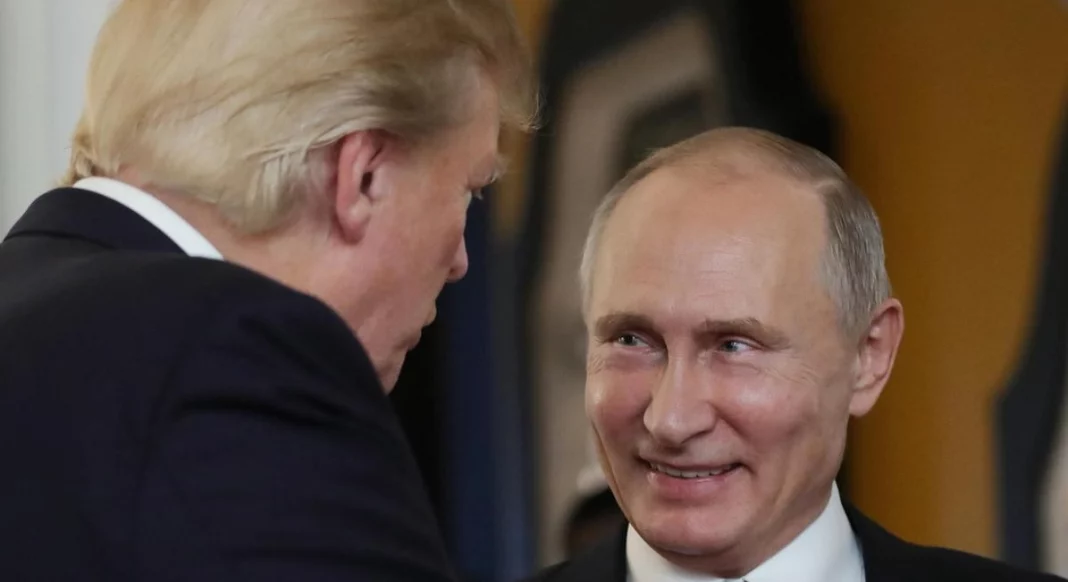If there is one country that has interfered with elections and the choice of leaders around the world more than any other, it is the US.
After US special counsel Robert Mueller announced that he was issuing indictments against 13 Russians and three companies, one thing was for sure: the row over Russian interference in the 2016 presidential election was not going to blow over soon. In fact it could easily keep going right through Donald Trump’s time in office, claiming a few more scalps along the way but, I suspect, unearthing no evidence of actual collusion by Mr Trump. Meanwhile the US President will continue to rant about a “witch-hunt”, as Vladimir Putin continues to assure him with an innocent smile that, honestly, he really knows nothing about it.
Others will have their say too and in America in particular, the fires of outrage will continue to be stoked by those who protest that foreigners – or a foreign power – might have sought to meddle in a US election.
The anger is genuine. It is just a little hypocritical. For if there is one country that has interfered with elections and the choice of leaders around the world more than any other, it is the US. This is quite apart from American involvement in numerous coup d’etats, from the one against Mohammed Mossadegh in Iran in 1953 to the fatal toppling of Salvador Allende in Chile in 1973.
Looking purely at foreign elections, Dov Levin of Carnegie Mellon University has compiled a database that tracks US meddling. According to him, there were more than 80 instances between 1946 and 2000, of which he says “about one third of them are public and two thirds of them are covert”.
Mr Levin says other countries do this too, including Russia, but that the latter has tried it less than half as many times as the US. For Russia, he says: “My estimate has been 36 cases between 1946 to 2000.”
It may well be that the Soviet Union had no need to interfere in elections in the old Eastern Bloc as there were no free and fair votes, hence Russia’s much lower figure. Nevertheless, the US remains the leader on Mr Levin’s database. Many will find this confirmation that airy American talk of democracy all too often means only the kind of democratic results the US finds acceptable.
Ah, comes the reply, but when the US interferes it is “only for a very good cause” or, as the former CIA director James Woolsey put it over the weekend, “in the interests of democracy”. Mr Levin cites the case of the 2000 Yugoslavian presidential election, about which he says: “We intervened in various ways for the opposition candidate Vojislav Kostunica. We gave funding to the opposition and we gave them training and campaigning aid. And, according to my estimate, that assistance was crucial in enabling the opposition to win.”
Since the object was to remove from power the appalling Slobodan Milosevic – who had already been charged with war crimes by that point – few would object to that American intervention.
More troubling was American interference in the Ukraine’s Maidan Revolution, which ousted Viktor Yanukovych in 2014. Then president Barack Obama later admitted he had “brokered a deal to transition power” in the country and since Mr Yanukovych was an unappealing character while his opponents were pro-western liberals, protests were again few.
The problem was that Mr Yanukovych was the country’s democratically elected leader and his removal violated the Ukrainian constitution. He was indeed, as he said, “the legitimate head of the Ukrainian state elected in a free vote by Ukrainian citizens”. Democracy is not best promoted by supporting illegal acts, which is what the US did in that instance. But justifying interference by saying it is “in the interests of democracy” is problematic in itself. For that inevitably translates to the US supporting one party or candidate that it views as being more “democratic” when that, surely, is up to the relevant populations to decide. That may not even be their criterion in any case. As I have written here before, if they choose to support someone who is less “democratic” – which really means someone less liberal and pro-market – it is not for outsiders to tell them they are wrong.
According to Mr Levin, what he calls “partisan electoral interventions” often succeed, “increasing the vote of the preferred side three per cent on average”. This margin, he says, “may be enough in many elections to determine the result”. So Americans riled at the thought that Russians might have interfered enough to cost Hillary Clinton the presidency should bear in mind their own country’s history of determining results in other democratic elections (and from Japan to Italy, there is a very long list). What gives them the right to interfere with other people’s choices?
Interestingly, this is the kind of behaviour that Mr Trump has repudiated, both as a candidate and as a president. At the Riyadh summit last year, his words echoed around the world when he said: “We are not here to lecture. We are not here to tell other people how to live, what to do, who to be, or how to worship”. He might well have added: "Or how to vote." Stripped of the “fire and fury” that surrounds the Trump presidency, the “principled realism” that is supposed to underpin its foreign policy is in many ways refreshing, not least in its near-acceptance (there are exceptions) of the idea of non-interference.
Never mind what the Russians have or haven’t been up to. If Mr Trump can end the American practice of meddling in other people’s elections, he will have done something laudable that would also raise America’s standing abroad. For by doing less, America might not be made “great again” – but it would certainly seem “greater” to the many countries who have suffered US interference over the decades.





